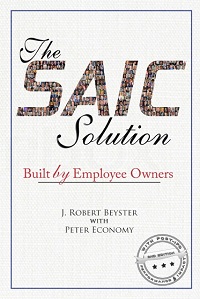What Do You Think of the Economy?
16 Comments Published by Dr. Beyster August 25th, 2009 in Government.I’ve been spending some of my time thinking about what’s going on the world and if things are getting better now that we have a new administration in Washington. It seems to me that things are getting better. There are certainly disappointments overseas, where the Iraqis can’t seem to govern themselves and where our hands are tied to do a lot. Afghanistan may be better. The economy seems to be slowly getting better, although people here in San Diego who know the real estate market believe there is a long way to go before things get back to normal.
I’m hopeful that in a year our economy will have made a dramatic improvement with all the stimulus going on. The car folks, for example, seem to building cars that people will actually want to drive. So today is my optimism day. But as you know, this can all change. I would certainly like to know your impressions of the current state of the economy, so put them on the blog.
– Bob





To your optimistic assessment, I would add a word of caution: What will be the longer range effects of this massive and sudden increase in national debt that we will bequeath successor generations? I don’t see how it can be managed without some combination of increased taxes and dollar devaluation — ie, inflating away our savings. Until we have a better sense of how this will be done, it seems to me to be a particularly bad time to be taking on costly new programs such as the wholesale restructuring of health care. There are a number of things we know how to do without throwing out the baby with the bathwater. One example is to reduce the costs of medical malpractice insurance by adopting tort reform such as Britain’s “loser pays”. But the lawyers in Congress would hate that proposal.
I am glad to read that you are optimistic about the economy. That’s also the way I feel. I have done very well in the past by taking the optimist’s view (examples: buying Network Solutions stock when the IPO was offered, investing in SAIC stock during my career). Economic cycles are a historic reality and hopefully we’re on the upswing of this one.
Bob – I am not as optimistic as you. I sense there will be another recession sometime in 2010. The clunker program worked because the stimulus dollars are going directly to the consumer.
Dr. Beyster,
We all know that the economic engine for recovery is small business – the perceptions of small business owners will dictate growth. (Small business being those companies employing under 100 people)
Yet I have to agree with Bob Wertheim – without increases in taxes to begin paying down the national debt – the value of the US dollar will continue to decline – while this may seem good for US exports – the long term affects will be dramatic shifts in world financial markets.
The increases needed to support the socialized systems proposed in the US will only increase the numbers of people and businesses dependent upon the governments (Fed, State, Local) for incomes. As taxes continue to rise to pay for maintining these dependencies – the number of businesses that are independent of government funds will decrease – the effect will be to reduce the number of business owners / indivdiuals willing to act entrepreneurially and take more risks. Thus – a reduction in development – while the US is still the most innovative and productive country in the world – this is due to scale – when the percentages begin to shift due to dependency on government and reduced risk taking – the innovation and development will begin to decline – while the developing countries of India, China, Brazil, and the regions of South Asia, Northern Asia, and South America – will continue to increase as education and GDP grows within the countries.
An example of this is the decline in entrepreneurship activity in Australia – once a beacon of small business independence – the liberal government has taxed/fee’d the small business market into a minority standing economically within the country. Over the past 20 years the number of indivdiuals independent of government spending has shrunk – to the point where minimal venture development is taking place. While the country has faired well during this last world recession period – that is due to the raw materials of the country – and the demand from India and China. (Don’t know if people recall but ‘one’ of the orginal intentions of the Japanese government for going to war in the late 1930s was to acquire control over raw materials – and so they attacked the South Pacific and had intentions on Australia) Wonder what some staunch hawk politicans in India and China are thinking today?
So – while the economy of the United States will improve over the short term – the question is what happens in the long term. Just as a person who overeats and doesn’t get exersize – it is not a matter of if – but when the health problems will start to occur.
Dr. Beyster – with your foundation – could a SimEconomy software program be developed – something like Yellow Seqouia’s SimVenture – where inputs will show the longer term consequences? It would be a good way to justify reactions to various policies being put into place today.
Then again – my crystal ball only gives me adjectives to take action – not facts.
Blake
Bob,
I am less optimistic about the U.S. economy.
America’s net-debt, as a percent of Gross Domestic Product, is now in uncharted territory, and the projection of the magnitude of debt, has just in the last week been proven to be severely inaccurate, i.e. financial projections off by a couple trillion dollars. The magnitude of this inaccuracy might indicate that we do not know where we are, in our exposure to risk, with our economy. Therefore, financial and political attempts to employ corrective actions would seem to expose America to unanticipated negative effects, or at least poorly calculable consequences.
Financial stimulants like “cash for clunkers†seem to me to have a high probability to condition the purchasing public to make purchases based upon government sponsored Pavlovian incentives, versus personal needs that their employment status enables them to afford. I guess the hope is that such incentives will help Americans to ride-through the trough in employment, or more accurately a peak of unemployment, until more stable and optimistic times arrive. It seems to me that there is an awful lot of, “And then a miracle happensâ€, in that corrective-action equation. It also seems to me that the heart of the problem is not simply employment, but the right kind of employment (aka high-paying jobs) that during the last fifty years contributed literally to the creation of the middle-class, and that enabled the baby boomer demographic to be vested in the productivity and success of American corporations through stock ownership, that employed many of them. If government’s illogical actions or in-actions diminish the continued existence of America’s middle-class, then I think that the economy and America’s security is compromised.
The panicky rate at which corrective measures are being attempted in Washington, does not appear to allow time to apply risk management methods and procedures that might diminish or even avoid unanticipated negative consequences. According to a recent op-ed by Warren Buffett, “With government expenditures now running 185% of receipts, truly major changes in both taxes and outlays will be required. A revival economy can’t come close to bridging that sort of gap.â€
OK. Maybe a miracle will occur.
Dan
Dr Beyster,
With regard to the (US) economy, here are my brief thoughts. I find that our inability to debate the question of Healthcare maddening. Townhall meetings, opt-ed statements, mean-spirited comments, etc.
Regardless of one’s politics or political affiliation, this country is in a healthcare crisis. The Haves vs. the Have-Nots are widely divided. Many of the Chambers of Commerce are speaking out against (the President’s) plan as “Evil.”
Bottom-line: supporting or non-supporting the Democrat’s healthcare initiative is not the issue. The issue is that we, as a nation, MUST have conversations about the state of our healthcare in America. We cannot allow our citizens, in need of healthcare coverage, to simply “Eat Cake.”
–Andre V. Milteer, M.A., Psychology
Dr. Beyster,
Right now, it feels to me like the economy is going sideways. Wall Street’s been having some fun, but I don’t think it reflects the broader economy. I see a bunch of mixed signals: real GDP was down in the 2nd quarter, unemployment is up to 9.7 from 9.4 percent, orders for durable goods were up five of the last six months, personal income was up 0.1%, and disposable income decreased about 0.1% (down from a 1.6% decrease in June). I’m no economist, but the big picture statistics don’t reassure me. I don’t see a compelling reason for the economy to improve significantly over the next two Quarters. I’m very curious to see what happens to sales this Christmas.
Our consulting business is steady, but sell cycles are very long and price pressure is significant. Our merchandise business is just getting of the ground so it provides no predictive value.
Sorry, I’m not more optimistic.
Bill
Bill: Good to hear from you. What you are experiencing is what most of the country is experiencing: a slowly improving economy. It’s good that you have a consulting business as a base. Good luck for the future. Where are you located, by the way? — Bob
Andre: The situation in health care in our country confuses me considerably. I guess that’s because I have not experienced any situations with my own plans where I was unable to get the care I needed when I needed it. I realize, however, that there are many millions of people who are not in my situation, and that is the issue the President is trying to deal with. It’s going to take a lot of money to have much impact. I hope we have enough. — Bob
Dan: I appreciate your blog post. As you can tell from reading the other recent responses from blog readers, few of them are optimistic about the economy recovering quickly. Your tidbit that government expenditures are running 185% of receipts is indeed alarming, but not unexpected. What usually bails us out historically is a military crisis of some sort where we are forced to spend significant national security resources to correct a major problem in the world. Maybe this won’t be the case this time, and the unemployment rate will remain high with a slow recovery. — Bob
Herb: I’m glad you think I was optimistic. From what I can see of the economy, another downturn could occur in 2010. I don’t think unemployment is going to improve quickly, and people are going to hoard their liquid assets for some time. That’s what most of us are doing now. When the housing market improves and is running stably again, that will certainly help. But there were so many horrible mistakes made in home lending practices, and this may take a while. — Bob
Blake: Thanks for your post — it’s good as usual. I find my readers split on optimism and pessimism for our nation’s economic future, with a definite tilt toward pessimism. I tend to lean toward the middle. I am pleased with many things Barack Obama has done. I realize that much of what he has done would not have happened under either Bush or McCain, and I voted for McCain. The point today is whether Obama and Congress are together spending us into a hole we won’t be able to climb out of. Economists have been wrong so many times that I don’t trust their opinions. We’ll just have to wait until the results of all this spending become more apparent. — Bob
Donna: Thanks for the nice comments. I hope you did well with your SAIC stock. I wonder how much you retained. I guess that’s none of my business. — Bob
Bob: Thanks for your comments on my blog. The questions you pose need to be answered by economists, not nuclear physicists. But I still have opinions or guesses. If I had to guess, I would say that the effects of a massive increase in the National Debt will be borne by our successors. Inflation will make the dollar worth a lot less and I think the Democrats will have a hard time increasing taxes. Some devaluation of the dollar is inevitable. The healthcare system in this country is pretty bad for most of the poorer people. Obama seems to want to do something about it. However, there is not much support in Congress. I am concerned that the money needed to accommodate these social reforms will come out of defense, and I have mixed feelings about that. I don’t want to see the country caught with its pants down again as we seem to every 10 years or so. Any tradeoffs need to be studied. What do you think? — Bob
Bob,
My Mind keeps coming back to the Unlikely Marriage of the U.S. Economy and the Healthcare reform debate/issue. Of course, NO simple answers.
I’ve taken my “Curiosity-Quest” to the LinkedIn (dotcom) member network. 55 Members have weighed in as of this writing. Posting a link to the Q & A, “How Would You Solve the US Healthcare crisis… http://www.linkedin.com/answers/health/health-administration/HTH_ADM/569378-27562477
Wanted to let all Beyster-Blog readers know that a “Best Answer” has been selected @LinkedIn.com. Question: How Would You Solve the U.S. Health Care Crisis?
66 total answers; 16 GOOD answers…1 BEST! http://www.linkedin.com/answers/health/health-administration/HTH_ADM/569378-27562477
-Thanks, Andre Milteer, M.A. ( http://www.LinkedIn.com/in/eResumes4Vips )